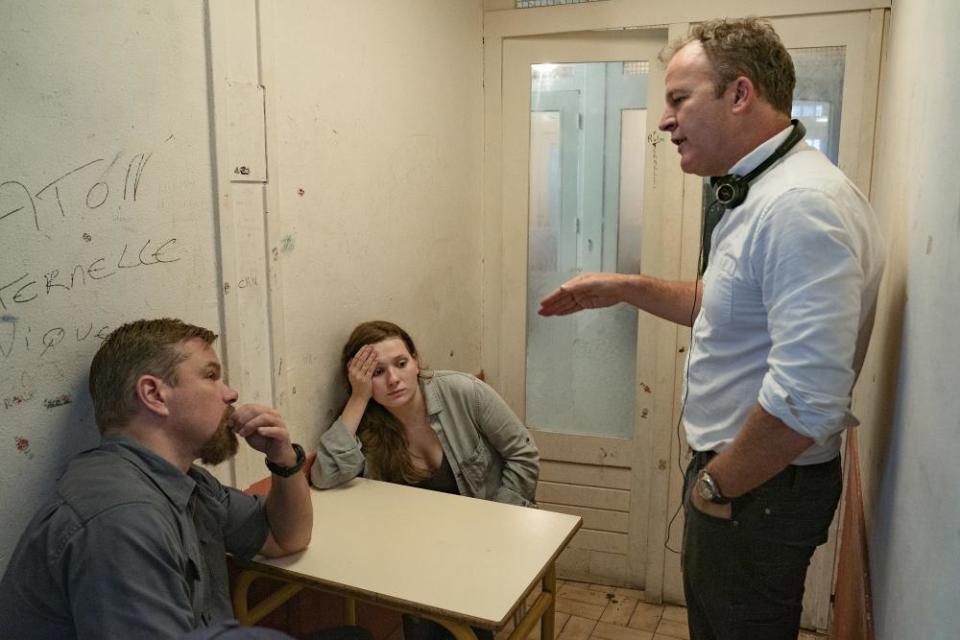Amanda Knox says Matt Damon film Stillwater ‘rips off’ and distorts her story
Amanda Knox has accused actor Matt Damon and director Tom McCarthy of “rip[ping] off my story without my consent at the expense of my reputation” in the upcoming film Stillwater, which McCarthy has said was inspired by Knox’s experience after the 2007 murder of British student Meredith Kercher in Perugia, Italy.
In an essay on the online publishing platform Medium, Knox takes particular aim at McCarthy, who told Vanity Fair that Stillwater was directly inspired by the Kercher case, which resulted in Knox being wrongly convicted for Kercher’s murder along with her then boyfriend Raffaele Sollecito, and spending four years in prison, before ultimately being acquitted in 2015 by Italy’s supreme court of cassation. Rudy Guede, who was sentenced to 16 years in prison in 2008, is the only person convicted of Kercher’s murder.
Stillwater, which premiered at the Cannes film festival in July, stars Damon as an American construction worker who travels to Marseille in France after his daughter (played by Abigail Breslin) is imprisoned for murdering her lover.
In her essay, Knox says that while McCarthy based Breslin’s character on her, he “fictionalised” the character in ways that made her look like a participant in the crime, including having a sexual relationship with the victim and asking the killer to “get rid” of the lover.

Knox writes: “How do you think that impacts my reputation? I continue to be accused of ‘knowing something I’m not revealing’, of ‘having been involved somehow, even if I didn’t plunge the knife’. So Tom McCarthy’s fictionalised version of me is just the tabloid conspiracy guiltier version of me.”
Knox adds: “By fictionalising away my innocence, my total lack of involvement, by erasing the role of the authorities in my wrongful conviction, McCarthy reinforces an image of me as a guilty and untrustworthy person.”
Accepting that the film-makers were under no obligation to consult her, she says that the failure to understand her perspective has resulted in “others continu[ing] to distort my character”.
“I was hounded by paparazzi, my story and trauma was (and is) endlessly recycled for entertainment, and in the process, I’ve been accused of shifting attention away from the memory of Meredith Kercher, of being a media whore.”
The Guardian has contacted McCarthy’s representatives for comment.

 Yahoo Movies
Yahoo Movies 
